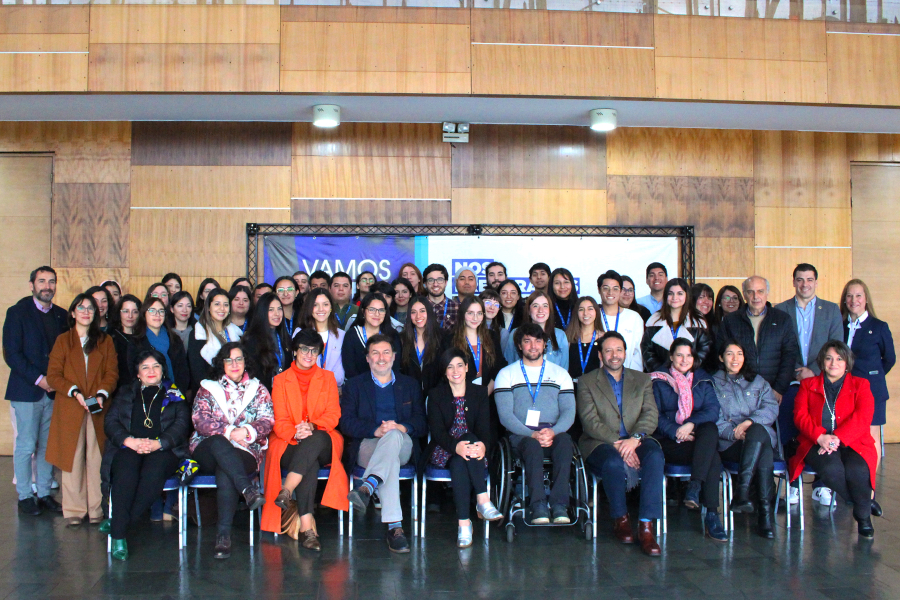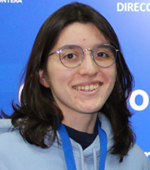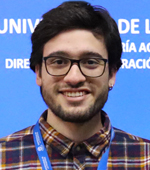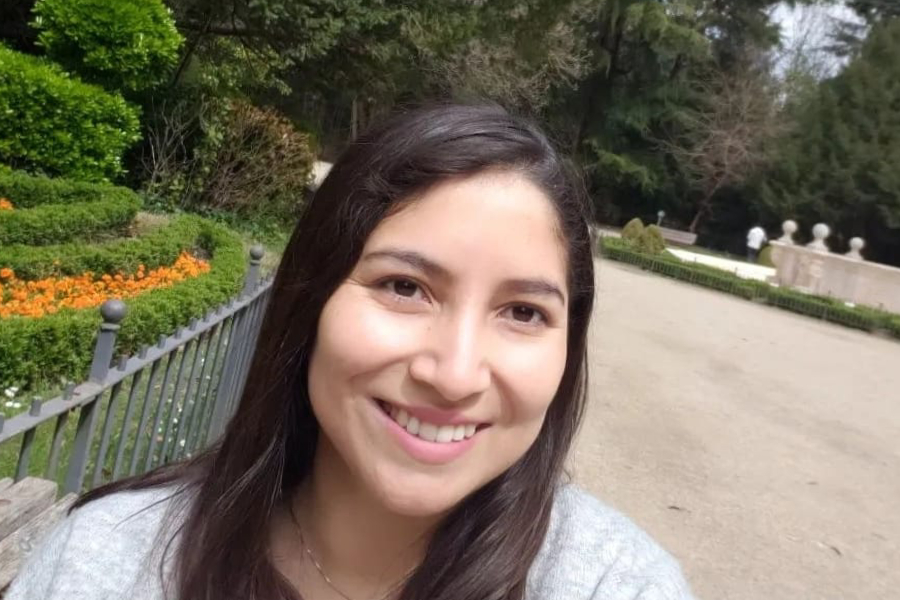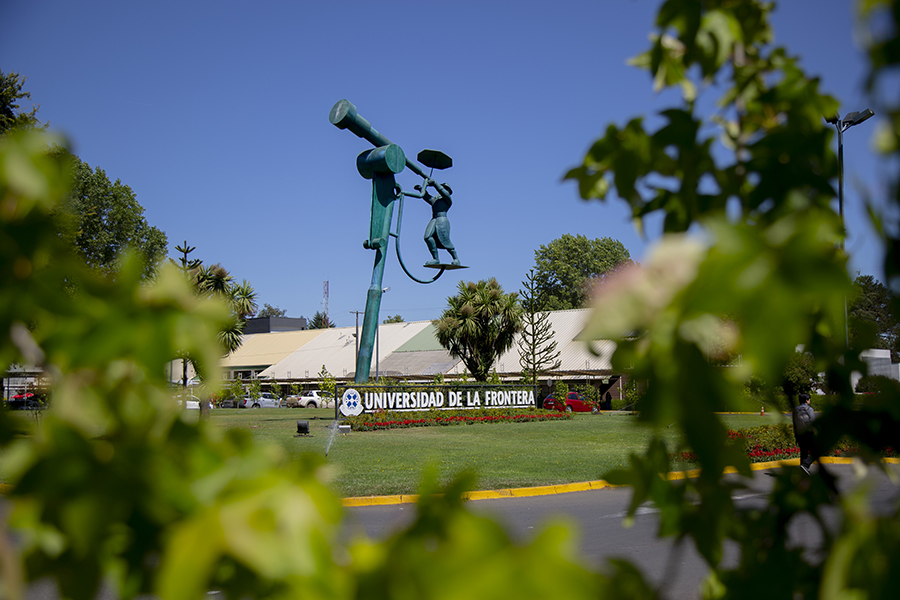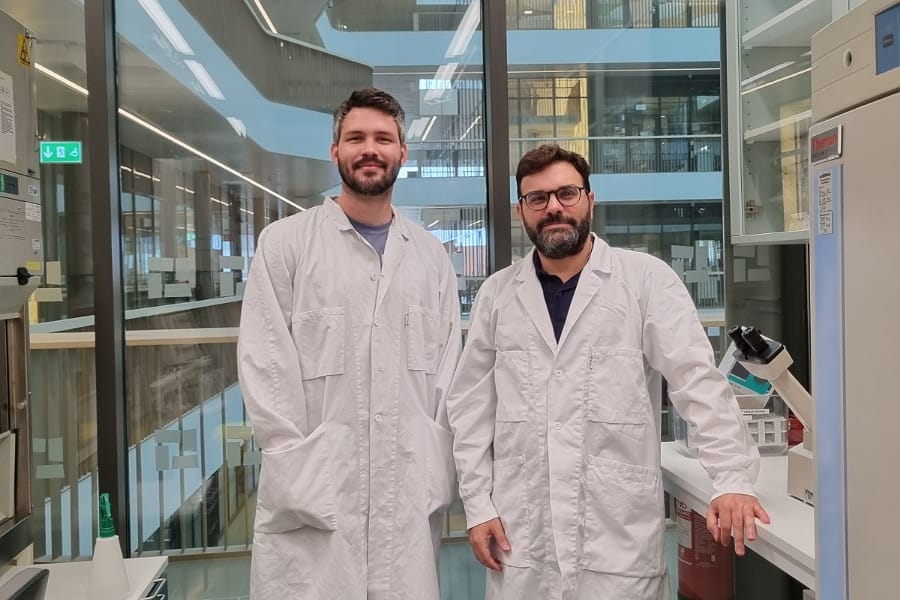|
The article by Dr. Rosa Reyes-Riveros addresses the connection between public urban green spaces and the human well-being. |
The journal Urban Forestry & Urban Greening recognised the article of the graduate of the Doctorate in Agri-food Science and Environment of Universidad de La Frontera (UFRO) as one of the most cited articles since 2020. The article “Linking public urban green spaces and human well-being: A systematic review” was published in 2021 and developed by Dr. Rosa Reyes Riveros, together with the researchers Adison Altamirano, Francisco De La Barrera, Daniel Rozas Vásquez, Lorena Vieli and Paula Meli. “I wrote this article when I was working on my doctoral thesis. It is about the relationship between public urban green spaces and human well-being, where human well-being is considered a multidimensional concept that encompasses health, security, good social relations, and freedom of choice and action,” Dr. Rosa Reyes explained. For the article, the research team performed a systematic bibliographic review to examine the interactions between specific characteristics of green spaces and essential elements for human well-being. Afterwards, they divided the green spaces characteristics found in 153 articles into four groups: structure, biodiversity, naturalness, and others; and the dimensions of human well-being into the four groups: health, security, good social relations, and freedom of choice and action. The expert explained that this issue is of great relevance, since several studies show the inequitable distribution of green spaces in big cities. “We would be talking about an inequitable distribution of the benefits they provide and be facing an issue of environmental injustice,” she pointed out. Despite the importance of public green spaces in urban environments, planning strategies keep using standardised criteria that leave out the benefits, which they provide for the human well-being. As a result, these strategies often result in a detriment of the spatial connectivity of green spaces and even the complete elimination of some of these areas. “I think that this article opens doors for research on issues that have not been widely addressed regarding the importance of public urban green spaces,” Dr. Reyes commented and expressed her surprise about the large number of citations of the article in such a short time. “Together with my supervising professors, we achieved a very comprehensive work, which, although it mainly addresses the environment, is also a multidisciplinary work that is useful for other fields of research, which is key for the high number of citations,” she explained. |
|
Thanks to the constant efforts, UFRO climbed up in the Times Higher Education Latin America University Rankings 2023, with results of excellence in the areas teaching, citations and industry income. |
Once again, the quality of Universidad de La Frontera (UFRO) was internationally recognized in the prestigious Times Higher Education (THE) Latin America University Rankings 2023, where UFRO managed to climb up compared to last year, to 59th place overall in Latin America. At the national level, UFRO is in twelfth place overall and in fourth place among the Chilean state universities. The Ranking, which is considered one of the most prestigious rankings in the world, assessed 197 institutions across 15 countries for its current report, including for the first time universities from Bolivia and Paraguay. The THE Latin America University Rankings uses the same 13 performance indicators as the THE World University Rankings, adjusting the weightings to reflect the characteristics of Latin American universities and evaluate them independently. The indicators are grouped into the areas teaching, research, citations, international outlook, and industry income, where UFRO presented results of excellence in teaching, citations and industry income. Dr. Renato Hunter Alarcón, the Vice-rector for Academic Affairs, was very satisfied with the results of UFRO in the Rankings, which reflect the efforts of the whole university community to maintain indicators of excellence and quality. “The result of this new report allows us to move forward towards the consolidation of UFRO as one of the leading universities in Chile. We are already ranked as the best university in the La Araucanía region and among the best 60 universities in Latin America, so these evaluations from external agents allow us to look at the future more calmly, but also challenge us to maintain and improve our institutional indicators, in order to be the best public and state university in the south of Chile,” he concluded. CLICK HERE TO SEE THE TIMES HIGHER EDUCATION LATIN AMERICA UNIVERSITY RANKINGS 2023
Written and translated by: UFRO Communications Office
|
|
Luis Martínez Durán joined the research team led by the academic Dasiel Borroto Escuela to investigate the cognitive phenomena related to molecular biology techniques and behavioural experiments. |
The doctoral student Luis Martínez Durán of the Doctorate in Science with specialization in Applied Cellular and Molecular Biology at Universidad de La Frontera (UFRO) went to Karolinska Institute in Stockholm, Sweden, for an international internship. He joined the Department of Neuroscience of the Institute, under the supervision of the academic Dr. Dasiel Borroto Escuela, a leading researcher in the field of neuroscience and neuropsychopharmacology, to focus on the understanding of alterations in heteroreceptor complexes located in the cell membranes of neurons and glial cells. “The objective of my internship is to elucidate molecular events related to learning and memory mechanisms through techniques such as in situ PLA and RNA-Flow Fish, as well as to determine the role of interactions between neuronal nicotinic acetylcholine receptors (nAChRs) and dopamine transporters (DAT) in cognitive phenomena,” explained Luis Martínez Durán. The student’s objectives are also part of the development of his line of research carried out at the Laboratory for Molecular Pharmacology and Medicinal Chemistry of UFRO, where the focus lies on cognitive phenomena related to molecular biology techniques and behavioural experiments. “This internship is a milestone for me, since the work is directly related to the objectives of my thesis; besides, it allows me to build a professional network for future collaborations and the development of new projects,” the student explained. According to Luis Martínez Durán, this experience is a great opportunity to broaden his horizons, to access new technologies, to get to know the work of colleagues from other parts of the world, and to grow professionally and personally. It is also worth mentioning that this internship is financed by the LANCE call “Complementary fund for the internationalisation of high impact pre-projects” of the project Ci2030. Written by: Doctorate in Science with specialization in Applied Cellular and Molecular Biology |
|
The program will provide a high-quality training for future professionals with a gender perspective, comprehensive expertise, regional commitment and the ability to confront the challenges of global citizenship. |
The Board of Directors of Universidad de La Frontera (UFRO) unanimously approved the implementation of a new undergraduate program in Special Education. The program will be part of the Faculty of Education, Social Science and Humanities and starts in the year 2024. With an emphasis on the general training of Special Education teachers, the future graduates of this program will have high social responsibility, a gender perspective, the ability to manage inclusion initiatives, regional commitment and the ability to confront the challenges of global citizenship. According to the dean of the Faculty of Education, Social Science and Humanities, Dr. Juan Manuel Fierro Bustos, “the program perfectly reflects the inclusive values of the Institutional Mission and UFROs Educational Model. In addition, it has an interdisciplinary approach that will allow us to develop inclusion initiatives together with other faculties. PROFESSIONALS The program consists of ten semesters, in which the students acquire the transversal skills to work in teaching and learning processes, multidimensional assessment, and diversity and inclusion management. “We are part of a society that makes constant progress in the recognition of education as a fundamental human right. In this context, this program also reflects UFROs commitment as a public university, by training professionals who will lead inclusion processes, promote the participation of each individual in learning processes and cultural and community activities, especially for those who were historically excluded because of their origin, socioeconomic status, culture, ethnic background, sexual orientation, gender identity or disabilities,” Patricia Pino pointed out. The director of Undergraduate Programs at the Faculty of Education, Social Science and Humanities, Abel Soto Higuera, commented: “We are very happy as a faculty and as a university about the implementation of this new program in Special Education, which will receive its first generation of students in 2024. This way, on the one hand, we will help to reduce the teacher shortage we are going to face in Chile in the near future, and on the other hand, we will help to provide equal chances for children, adolescents and the population in general, thus strengthening inclusion and diversity, which are very necessary in our society.” Written by: Faculty of Education, Social Science and Humanities |





